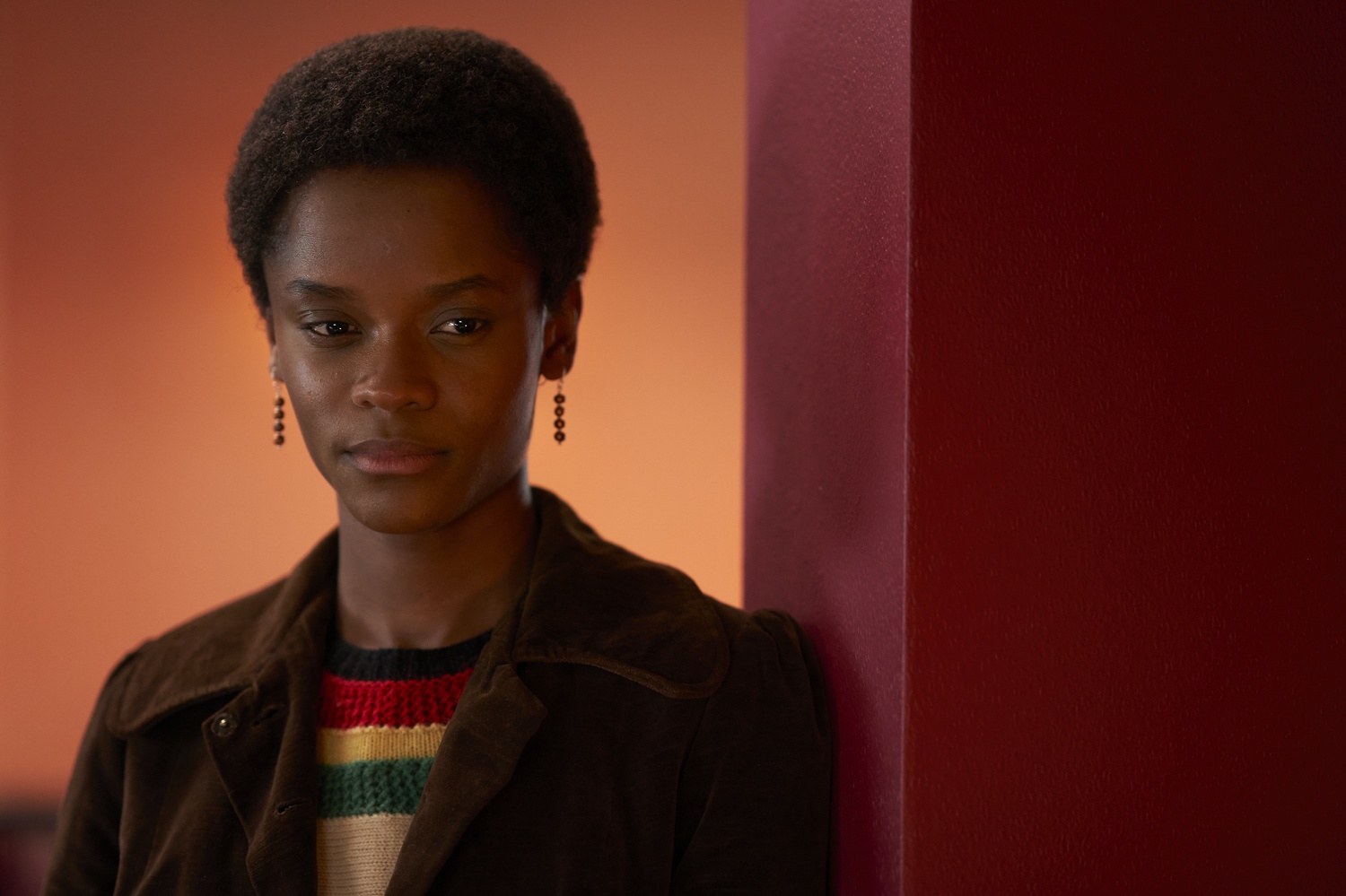
News
Summers Will Not Finish Semester of Teaching as Harvard Investigates Epstein Ties

News
Harvard College Students Report Favoring Divestment from Israel in HUA Survey

News
‘He Should Resign’: Harvard Undergrads Take Hard Line Against Summers Over Epstein Scandal

News
Harvard To Launch New Investigation Into Epstein’s Ties to Summers, Other University Affiliates

News
Harvard Students To Vote on Divestment From Israel in Inaugural HUA Election Survey
From NYFF: ‘Mangrove’ is a Tense, if Conventional, Courtroom Drama
Dir. Steve McQueen — 3.5 Stars

After Steve McQueen's hypnotic "Lovers Rock," the scintillating film that opened this year’s New York Film Festival, "Mangrove" feels somewhat disappointing. Both “Lovers Rock” and “Mangrove” are part of McQueen’s anthology “Small Axe,” five standalone films that represent the West Indian experience in Britain from the 1960s to the 1980s. While McQueen tells an ambitious and timely story, “Mangrove” doesn’t serve dramatic justice to its incendiary subject matter. It’s an entertaining courtroom drama, but it’s also paint-by-numbers in a way that doesn’t lend the emotional heft one would expect from such an important (yet surprisingly unrepresented) slice of history.
“Mangrove” is the story of the Mangrove Nine, a group of Black British activists who were tried for instigating a riot while protesting police brutality. The Mangrove was a Black-owned restaurant in Notting Hill, London that served West Indian cuisine and quickly became a beloved institution in the neighborhood’s Black community. Because of this, the Mangrove became the subject of repeated, baseless, and racially-sparked police raids that helped galvanize the Black Panther movement in Britain. McQueen’s cast headlines Letitia Wright (“Black Panther”) as activist Althea Jones-Lecointe and Shaun Parkes as Mangrove owner Frank Crichlow.
Crichlow is framed as a reluctant hero not on the same page as the other activists. This provides a second dimension of conflict in the courtroom scenes: The activists not only need to fend against the court but also need to fight to stay unified. Unfortunately, Circhlow’s riveting character arc is often undermined by an uneven screenplay penned by McQueen and Alastair Siddons (of the "Tomb Raider" reboot). In one of the film’s most important scenes, Crichlow sits down with an activist who tries to convince him to hold a political demonstration in front of the Mangrove. Crichlow lists his concerns, chiefly, that the police would close down his establishment. He represents the initial hesitance that millions face before participating in civil unrest, and is motivated first and foremost to own a “respectful restaurant... not a battleground.” But in this scene, Crichlow finds his back against the wall — he realizes that the peaceful existence he covets is impossible because of systemic injustices. But going from that realization to agreeing to hold a rally — an important decision for Crichlow — is reduced to a single moral platitude. The activist tells him “a demonstration is the right thing to do.” Well, if only others had only told Crichlow it was the “right thing” too — he would have taken on their cause much earlier!
It’s these occasional bursts of implausible writing that cripple “Mangrove” in its most potent moments. Arguments blow up before dissipating into thin air, and some characters carry the same fever-pitched anger from start to end. This creates a breathless tone that lends itself well to fast pacing and entertainment value, but also leaves “Mangrove” feeling occasionally tedious and unbalanced. McQueen tries to account for this imbalance by including some levity, with characters bursting into song over a dinner table or dancing outdoors. But these scenes are too few and far between to feel like natural inclusions.
Perhaps the most striking shot in the film is one where “Mangrove” stops to take one of its only breaths. It takes place in the aftermath of a violent police raid, where they had used batons to wreak havoc in the Mangrove’s kitchen. A stationary camera on the ground lingers on a shot of a bowl rolling around, in silence, long after the cooks run away and the police leave. It’s a harrowing reminder of the lasting damage that has done, damage that audiences are finally given time to internalize.
After breakneck pacing in the first act, “Mangrove” finds more even footing in its second act as an intelligent and tense, if conventional, courtroom drama. Here, McQueen addresses the systematic nature of racial oppression. The Mangrove can never succeed as a business institution because it is constantly being raided by the police. It’s not just the broken equipment and dishes that set back operations — customers won’t return to an establishment where they could be arrested for a crime as heinous as eating.
The legal system is also tilted against the activists, but they try to find creative ways to navigate it. The Mangrove Nine made arguments in court for an unprecedented all-Black jury, and also represented themselves legally so that they could cross-examine witnesses. One of McQueen’s arguments seems to be that one cannot rely on white institutions to solve themselves. It is impossible to complain to the police about white policemen, because all policemen are white. It is equally impossible to say to a white judge that white policemen systematically target Black communities, because they all beget the same oppressive system.
“Mangrove” features powerful performances from a talented ensemble of actors, and even more powerful themes. However, McQueen’s latest is not a powerful film. It stumbles occasionally with uneven pacing and unconvincing dialogue that undermine an otherwise taut courtroom drama, one that had the potential to be a politically explosive film.
—Staff writer Lanz Aaron G. Tan can be reached at lanzaaron.tan@thecrimson.com and on twitter @LanzAaronGTan1.
Want to keep up with breaking news? Subscribe to our email newsletter.
